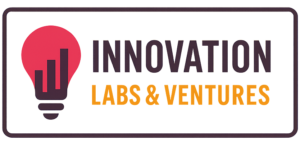Community Transportation Network
Structured ride‑sharing service that reduces transportation barriers while strengthening local economies. Unlike traditional platforms that extract value, Last Mile keeps revenue in communities, supports local drivers, and integrates with neighborhood development. Transportation that builds communities.
Community Transportation vs Traditional Ride‑Sharing
Traditional Platforms
- Extract 40%+ of revenue from communities
- Drivers classified as contractors with no benefits
- Surge pricing exploits high‑demand periods
- Limited integration with local services
- Corporate ownership and decision making
- Wide geographic coverage
- Established user base and technology
Last Mile Network
- 85% revenue stays with drivers and community
- Driver equity participation and benefits
- Transparent, fair pricing structure
- Integrated with local businesses and services
- Community governance and decision making
- Focus on neighborhood economic development
- PersonasOS integration for seamless experience
Public Transit
- Low cost and publicly funded
- Serves essential transportation needs
- Limited routes and scheduling flexibility
- Poor last‑mile connectivity
- Safety and reliability concerns
- Community‑oriented mission
- Environmental sustainability
Community‑Centered Service Features
2026 Detroit Corridor Pilots
Four strategic corridors connecting residential neighborhoods to employment, services, and transit hubs. Each corridor designed to strengthen local economic development while providing essential transportation access.
Supporting Community Drivers
Higher Earnings & Equity
85% revenue share (vs 60% industry standard) plus equity participation after 6 months. Health benefits, vehicle maintenance support, and professional development opportunities.
Community Investment Program
Drivers become stakeholders in neighborhood development. Participation in corridor planning, service expansion decisions, and revenue reinvestment priorities.
Flexible Career Pathways
Advancement opportunities into fleet management, community coordination, and venture operations. Skills training and leadership development included.
Local Hiring Priority
Detroit residents receive hiring preference and additional training support. Focus on providing economic opportunities for long‑term community members.
Community Economic Impact
Revenue Retention
$2.5M annually staying in Detroit communities vs traditional platforms that extract 40%+ to corporate headquarters outside the city.
Local Employment
200 driving jobs plus 25 coordination and management positions. Focus on residents who live in the corridors being served.
Business Integration
150+ local business partnerships creating referral revenue and foot traffic. Transportation becomes economic development tool.
Financial Projections (2026‑2030)
- Year 1 (2026): $3M revenue across 4 corridors
- Year 2 (2027): $8M revenue, 8 corridors
- Year 3 (2028): $18M revenue, citywide coverage
- Year 5 (2030): $45M revenue, multi‑city expansion
Community Development Metrics
- Transportation Access: 40% reduction in mobility barriers
- Business Revenue: $500K additional local spending
- Employment: 225 direct + 400 indirect jobs
- Equity Building: 170 driver‑owners by year 3
Innovation Labs Ecosystem Integration
PersonasOS Connected
User profiles, preferences, and payment methods sync across the entire ecosystem. Seamless booking from housing, hotel, or retail locations.
The Grid Powered
Real‑time routing optimization, demand prediction, and driver coordination through decentralized infrastructure. No corporate data extraction.
Multi‑Venture Support
Direct integration with Eastern Market development, PrintBox locations, cultural venues, and housing communities for seamless mobility.
Join the Community Transportation Revolution
Be part of Detroit's 2026 transportation pilots that prioritize community development over corporate profit. Early drivers, community partners, and corridor supporters get founding member benefits.
Ready to Move Communities Forward?
Last Mile corridors launch across Detroit in 2026
